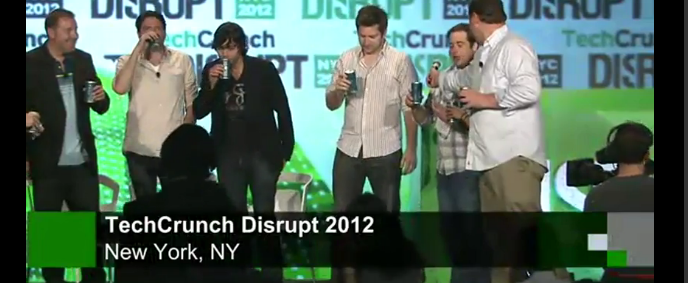What defines a startup? The word is thrown around casually in business thanks to the high profile web 2.0 companies that have captured the imagination of the public. Yet the word “startup” shouldn’t be slapped onto any new business. According the The Lean Startup author Eric Ries, “a startup is a human institution designed to deliver a new product or service under conditions of extreme uncertainty.”
I’d add to his definition: a startup is a business just like any other, with one key exception – a startup is designed to scale with an exit in mind, whether that is going public or getting acquired by a larger company. A startup is uncertainty plus scalability. Although these parameters can apply to any kind of business, the word is mostly used to describe technology startups. Tech startups are businesses that are designed to massively scale thanks to advances in mobile hardware, internet access, and wireless technology.
Yet, over the last year, something strange is happening to the word “startup.” Lately, businesses that do not use technology as a core part of their businesses are being referenced and celebrated in tech startup circles, and the founders of these companies are being celebrated as startup entrepreneurs.
A recent example of this phenomenon is the eyewear company Warby Parker. Although the company is extremely popular with the startup crowd, the only real innovation is has taken on so far is making prescription eyewear cheaper and more accessible. That alone should be celebrated, but does it make the company a technology startup? Sure, Warby Parker has a beautiful website and its retail staff is now armed with iPads to make the buying experience more efficient, but do these factors make the company a startup? I don’t think so.
However, the founders can be seen rubbing elbows with technology entrepreneurs at events and on technology-based podcasts. Although some may call its complete shake-up of the prescription eyewear market “price and supply chain innovation,” Warby Parker is not a technology startup. Neither is a beer can company.
Why is the technology community embracing actor Adrian Grenier’s beer can company as a startup? Churchkey Can Co., manufactures and markets a nostalgic Pilsner-style beer that is meant to be a throwback to the beer culture of the mid-twentieth century. There is nothing technologically advanced about the operation – it’s just retro beer in a retro steel can. Even so, Grenier and his co-founder, former Nike designer Justin Hawkins, got a coveted slot on stage at TechCrunch Disrupt to hawk the new company.
“Why is a beer company at Disrupt, and why are there tech investors involved in a beer company?” asked MG Siegler, partner at CrunchFund – which is investing in the company – on stage at TechCrunch Disrupt.
The Churchkey founders launched into a story about how they shook hands at a dinner party after agreeing that the old flattop beer cans that their grandfathers used to drink from “should come back.”
“We assumed that other people might want the same thing. And I think we were right,” remarked Hawkins. Siegler and Hawkins agree that the vintage packaging of the beer is “disruptive.”
Grenier answers the original question in the final few minutes of the interview, in a semi lucid pontification about how people in the technology community want something real that they can latch onto. “Tech is online, it’s digital. It’s not in the real world. But this is a physical experience, a human interaction.”
Hawkins follows up by adding that there are a lot of correlations between technology and the beer industry, including the fact that many startups were founded over a few beers. Nice try guys.
The team’s appearance at Disrupt was clearly an informercial placed by the CrunchFund team to get the product in front of a traditionally enthusiastic beer-drinking crowd, which just so happen to be people working in the technology and startup industry.
Coinciding with the hype around the Facebook IPO, the godfather of Silicon Valley, Steve Blank, is worried that the emphasis on social networking is ruining the future of innovation. I’ll add to that sentiment by saying this: a beer can company is ruining the future of innovation, too.
Blank argues that venture capitalists will now be more likely to kill off their life sciences divisions that will pay them returns in 15 years rather in favor of investing in a social enterprise that will scale and payback returns in just a few years. CrunchFund is doing something similar. On stage, Siegler noted that the fund’s first priority was in the interest of producing a big return for the fund’s limited partners. His motivation makes sense – his priority is to produce big returns. Churchkey is most likely going to be a home-run investment with that objective in mind.
A beer can company is clearly not a technology startup. If we connect back to Ries’s definition of a startup, Churchkey Can Co. is not even considered a startup. There is not extreme uncertainty in a beer company. The business model, the distribution model, and even the product development is standard practice in the beverage industry.
Churchkey Can Co. is just that – a can company. The startup community should not allow companies like this to take away press and resources that should be given to true innovators. Although the hosts of the event invited the company because it is “disrupting” the beer industry, its stage time would have been better spent on a technology startup presentation.







